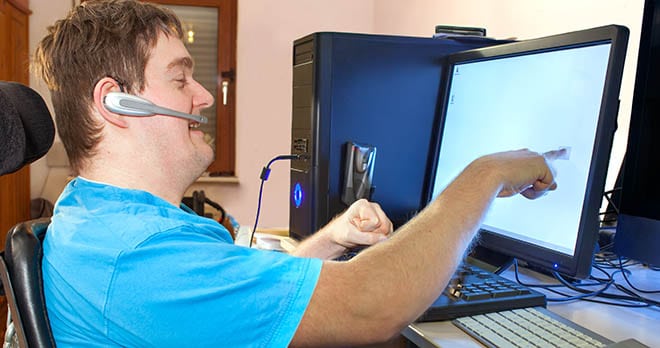Welcome news for adults with cerebral palsy – the new guidelines from NICE

Brexit-aside, life goes on for most of us, and for no group of people can it be much harder than for adults with cerebral palsy.
Along with the, very welcome, improvements in care and associated increase in life expectancy for people with cerebral palsy, come the challenges of living as full and as independent a life as possible. It is well recognised that adults with cerebral palsy will face challenges such as changes in muscle tone, weakness and pain, communication difficulties, nutritional problems and even possibly mental health problems. It is estimated that there are well over 30,000 adults with cerebral palsy in the UK.
We have seen at first hand, working alongside families of children with cerebral palsy, the very real stress and anxiety they feel as their child grows up and then has to navigate the challenges of a transition from child to adult support services.
It is therefore most welcome that NICE have now published a guideline on the care and support needs of adults with cerebral palsy. Whilst not compulsory, the guidelines set out a clear framework that local and regional service providers should follow in order to provide unambiguous pathways of clinical and social care for adults with cerebral palsy. At the very least, the guidelines should help to overcome the variation that currently exists in provision of such services.
The new guidelines from NICE
Specifically, the guidelines will tackle:
- the development of pathways to allow adults with cerebral palsy access to a local network of care including learning disability and mental health services, rehabilitation medicine and specialist support provision such as physiotherapy, occupational therapy and wheelchair services;
- the identification of, and addressing of, factors which prevent adults with cerebral palsy accessing care services or participating in activities;
- the provision of regular reviews for adults with cerebral palsy, tailored to their needs and preferences;
- the issues adults with cerebral palsy face who would like to live independently, enabling them to gain access to expertise including advice on adaptations to their homes.
That these guidelines have been published is largely we feel due to the campaign Scope have been pursuing over the past few years, to try and give people with cerebral palsy equal opportunities. This campaign also mirrors our work on behalf of people with cerebral palsy, to try and provide them with the financial resources to live as independent and fulfilled lives as possible.
Can these guidelines deliver?
They say that “the proof of the pudding is in the eating” – and in this case whether these guidelines can deliver real and immediate changes for adults with cerebral palsy, will as usual come down to the resources which are applied to this.
The sentiment and the practical approach of the guidelines however is very much to be welcomed, most especially by people with cerebral palsy and their families.